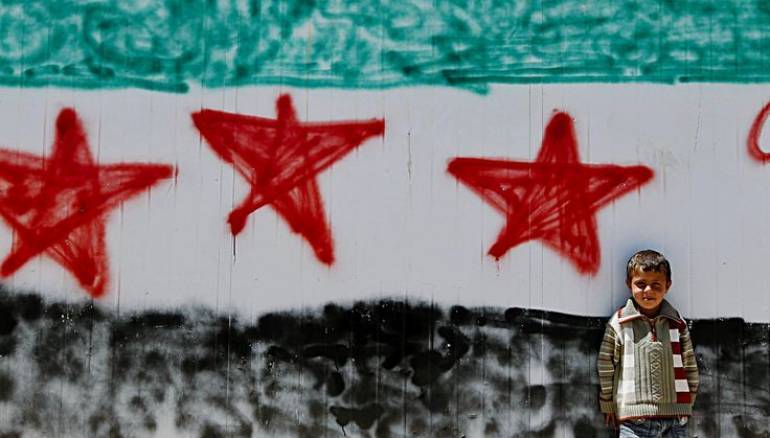Amid the ongoing diplomatic row in the Gulf and the cutting of ties with Qatar by a number of countries, Zaman al-Wasl looks at seven key dates for Doha with regards to the Syrian revolution:
July 18, 2011: Qatar’s ambassador and diplomatic mission leave Damascus and close the embassy in the first official and clear diplomatic step opposing the suppression of peaceful protests by the Assad regime. Qatar preceded all the countries of the world in this step.
Sept. 25, 2012: Qatar openly calls for military intervention in Syria against the Assad regime and calls for the implementation of a no-fly zone. Qatar is therefore one of the first, if not the first in the world, to call for military intervention and paralyzing the regime air force, which would later be used against Syrian civilians.
Nov. 11, 2012: Doha witnesses the birth of the Syrian National Coalition as an umbrella organization for the revolutionary forces and the Syrian opposition. The next day, Nov. 12, Qatar recognized the Coalition as part of a collective action by various Arab states.
March 26, 2013: The Syrian opposition occupies Syria's seat at the Arab League during a summit in Doha. This is the first and last time the Syrian opposition was able to represent Syria in the Arab League. It is clear the host country Qatar has been key in handing over the representation to the opposition on this occasion.
The Doha summit is the first Arab summit to recognize the Syrian National Coalition as a legitimate and sole representative of the Syrian people. The flag of the Syrian revolution is raised for the first time in the corridors of the summit instead of the regime flag. The Doha summit recognizes the right of Arab states to arm the Syrian opposition, and Qatar is quick to implement this on the ground.
March 27, 2013: Qatar hands over the Syrian Embassy building in Doha to the Syrian opposition represented by the Syrian National Coalition, thus becoming the first country to deliver the Assad regime's embassy to the Coalition as the legitimate representative of the Syrian people.
Dec. 23, 2013: The Syrian detainee, or "Caesar," report is published. Qatar has been working silently and tirelessly on one of the most important dossiers in the history of the Syrian revolution: the dossier of the victims of torture in the prisons of President Bashar al-Assad. This report includes around 55,000 images of potential war crimes leaked by a regime dissident known as "Caesar."
Qatar secures legal support to document the dossier, so that it has the power to be heard before the various judicial bodies. The dossier is the strongest evidence so far condemning the Assad regime for its killing of Syrians since the outbreak of the revolution.
Nov. 26, 2016: Qatar issues a statement saying that it will continue to arm the Syrian opposition, even if the U.S. stance changes following the election of Donald Trump. The American president had said after his victory that the overthrow of Assad is not a priority and that he will focus on fighting the Islamic State.
This article was edited by The Syrian Observer. Responsibility for the information and views set out in this article lies entirely with the author.


